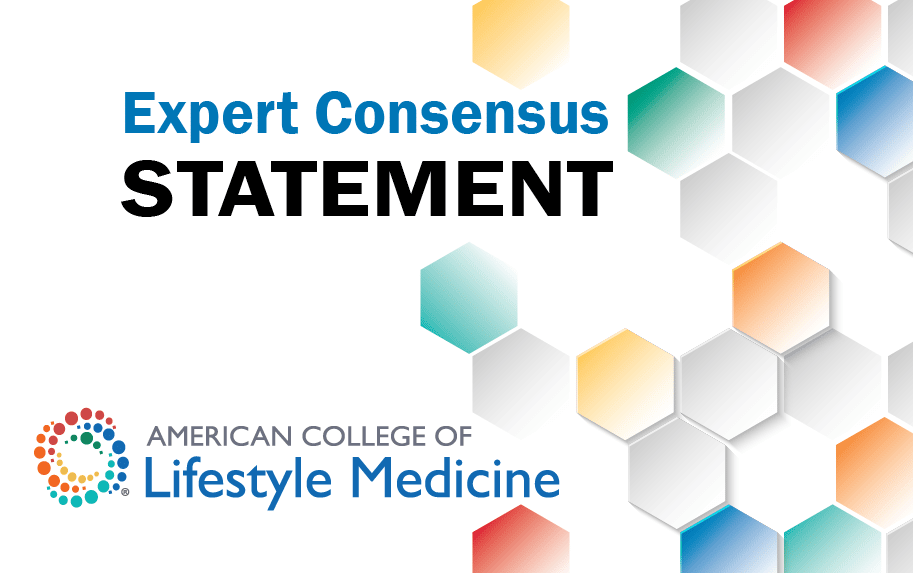Dietary Interventions to Treat Type 2 Diabetes in Adults with a Goal of Remission: An Expert Consensus Statement from the American College of Lifestyle Medicine
Richard M. Rosenfeld, MD, MPH, MBA, John H. Kelly, MD, MPH, Monica Agarwal,MD, MEHP, FACE, Karen Aspry, MD, MS, FACC, Ted Barnett, MD, FACLM, Brenda C. Davis, RD, Denise Fields, PharmD, BC-ADM, FASHP, Trudy Gaillard, PhD, RN, CDCES, FAHA, Mahima Gulati, MD, MSc, George E. Guthrie, MD, MPH, CDE, CNS, FACLM, FAAFP, Denee J. Moore, MD, Gunadhar Panigrahi, MD, FACC, Amy Rothberg, MD, PhD, Deepa V. Sannidhi, MD, Lorraine Weatherspoon, PhD, RDN, Kaitlyn Pauly, MS, RDN, Micaela C. Karlsen, PhD, MSPH
The American College of Lifestyle Medicine has released an expert consensus statement to assist clinicians in achieving remission of type 2 diabetes in adults using diet as a primary intervention. The expert consensus statement is endorsed by the American Association of Clinical Endocrinology (AACE), supported by the Academy of Nutrition and Dietetics (AND) and co-sponsored by the Endocrine Society.
Abstract
The objective of this Expert Consensus Statement is to assist clinicians in achieving remission of type 2 diabetes (T2D) in adults using diet as a primary intervention. Evidence-informed statements agreed upon by a multi-disciplinary panel of expert healthcare professionals were used.
Results:
The expert panel identified 131 candidate consensus statements that focused on addressing the following high-yield topics: (1) definitions and basic concepts; (2) diet and remission of T2D; (3) dietary specifics and types of diets; (4) adjuvant and alternative interventions; (5) support, monitoring, and adherence to therapy; (6) weight loss; and (7) payment and policy. After 4 iterations of the Delphi survey and removal of duplicative statements, 69 statements met the criteria for consensus, 5 were designated as near consensus, and 60 were designated as no consensus. In addition, the consensus was reached on the following key issues: (a) Remission of T2D should be defined as HbA1c <6.5% for at least 3 months with no surgery, devices, or active pharmacologic therapy for the specific purpose of lowering blood glucose; (b) diet as a primary intervention for T2D can achieve remission in many adults with T2D and is related to the intensity of the intervention; and (c) diet as a primary intervention for T2D is most effective in achieving remission when emphasizing whole, plant-based foods with minimal consumption of meat and other animal products. Many additional statements that achieved consensus are highlighted in a tabular presentation in the manuscript and elaborated upon in the discussion section.

